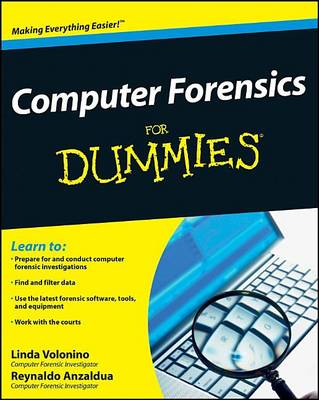For Dummies
2 total works
By the time you finish reading this book, you'll know how to: Prepare for and conduct computer forensics investigations Find and filter data Protect personal privacy Transfer evidence without contaminating it Anticipate legal loopholes and opponents' methods Handle passwords and encrypted data Work with the courts and win the case Plus, Computer Forensics for Dummies includes lists of things that everyone interested in computer forensics should know, do, and build. Discover how to get qualified for a career in computer forensics, what to do to be a great investigator and expert witness, and how to build a forensics lab or toolkit. Note: CD-ROM/DVD and other supplementary materials are not included as part of eBook file.
Discover the process of e-discovery and put good practices in place.
Electronic information involved in a lawsuit requires a completely different process for management and archiving than paper information. With the recent change to Federal Rules of Civil Procedure making all lawsuits subject to e-discovery as soon as they are filed, it is more important than ever to make sure that good e-discovery practices are in place.
e-Discovery For Dummies is an ideal beginner resource for anyone looking to understand the rules and implications of e-discovery policy and procedures. This helpful guide introduces you to all the most important information for incorporating legal, technical, and judicial issues when dealing with the e-discovery process. You'll learn the various risks and best practices for a company that is facing litigation and you'll see how to develop an e-discovery strategy if a company does not already have one in place.
- E-discovery is the process by which electronically stored information sought, located, secured, preserved, searched, filtered, authenticated, and produced with the intent of using it as evidence
- Addresses the rules and process of e-discovery and the implications of not having good e-discovery practices in place
- Explains how to develop an e-discovery strategy if a company does not have one in place
e-Discovery For Dummies will help you discover the process and best practices of managing electronic information for lawsuits.

